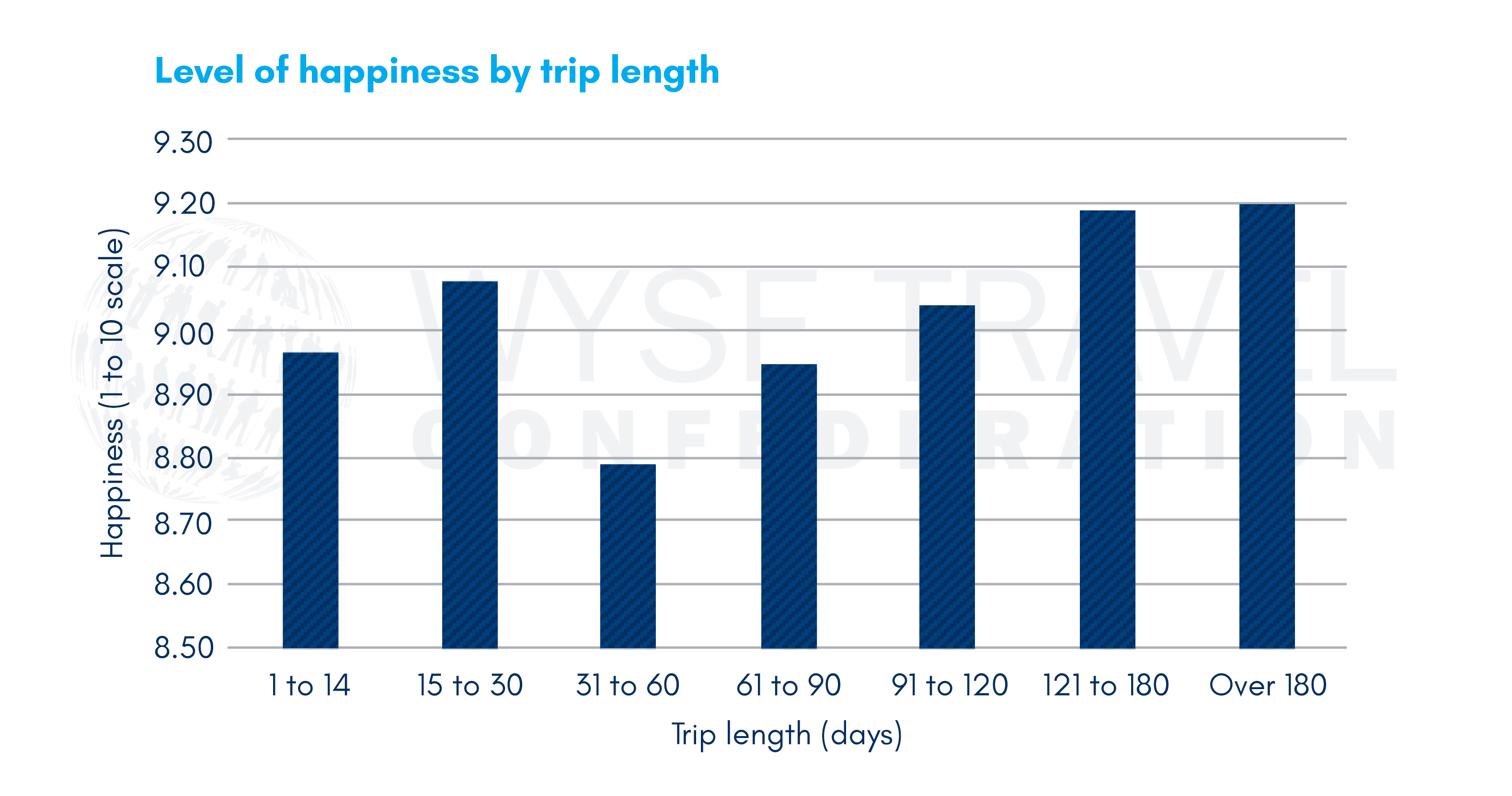News
Manchester, United Kingdom — 22-25 September 2009WYSE Archives
![]()
Work abroad makes youth happy until this point in the trip
Young travellers who went abroad for work experience tended to be very happy about their trip, scoring it just over 9 on a scale of 1 to 10, according to WYSE Travel Confederation’s global survey on youth and student travel, New Horizons IV. However, the survey also reveals happiness varies considerably by trip length and a dip in happiness for trips 31 and 60 days long.
Happiness increased for trips lasting 15 to 30 days compared to shorter trips but fell sharply for trips lasting 31 to 60 days. The level of happiness increased steadily with trips longer than 60 days. The pattern seems to suggest that a stay of at least 30 days coincides with the onset of culture shock or other challenges that have an impact on a young traveller’s happiness during the trip.
To check the 30-day dip apparent in the New Horizons IV data, we asked several WYSE Travel Confederation members involved in work abroad experiences if cultural challenges typically present around day 30 of a long trip and if so, what types of challenges are common?

“Cross-cultural learning is meant to be a ‘stretch’ experience – one that should be approached as a positive challenge, not a negative one.” said James Bell, President of Alliance Abroad Group, a company facilitating cultural exchange through work abroad experiences. “The issue around day 30 is that you may have less energy to face these challenges.”
One could say that the ‘honeymoon’ phase of living in a new country fades away when the reality of expectations on the job and in the host culture set in for young travellers on a work experience trip.
“You may start to struggle with the same challenges that anyone has in finding work/life balance,” said Bell. “It can also be a maturing process – that you are learning some things for the first time, like managing finances, paying rent, cooking, or cleaning.”
With so many types of work abroad experiences available, does cultural adjustment also depend on the destination or the type of work?
“We see cultural challenges present themselves within the first week and they tend to be environmental, so transitioning from one’s comfort zone and support network,” said Andrew Procter, Managing Director of African Impact, an organisation providing volunteer experiences for travellers wanting to discover Africa and make a positive contribution while doing so. “It’s not destination-dependent at all, though those working on social projects may experience cultural challenges more than those involved with conservation projects.”
What helps travellers get past the 30-day dip when the initial excitement of immersing oneself in a different culture has faded?
“We celebrate cultural differences and try not to talk about culture shock as it is such a negative statement,” said Procter. “Having a team of people who are aware of the cultural differences and have experience in building bridges through simple, proactive communication helps to avoid one culture butting up against another and causing friction or shock.”
“The best way to regain positive emotional energy is to be open and active,” said Bell. “Attend events, engage in activities, try and make friends – avoid the temptation to retreat by staying in your room or calling home.”
The New Horizons IV Survey collected responses from more than 57,000 young travellers from 188 countries and territories to questions about their last international trip. Findings related to work abroad and work experience travel will be published in the forthcoming report New Horizons IV: Work abroad travel. Publications in the New Horizons series on youth and student travel are free for members and available for purchase on the WYSE Travel Confederation website.

